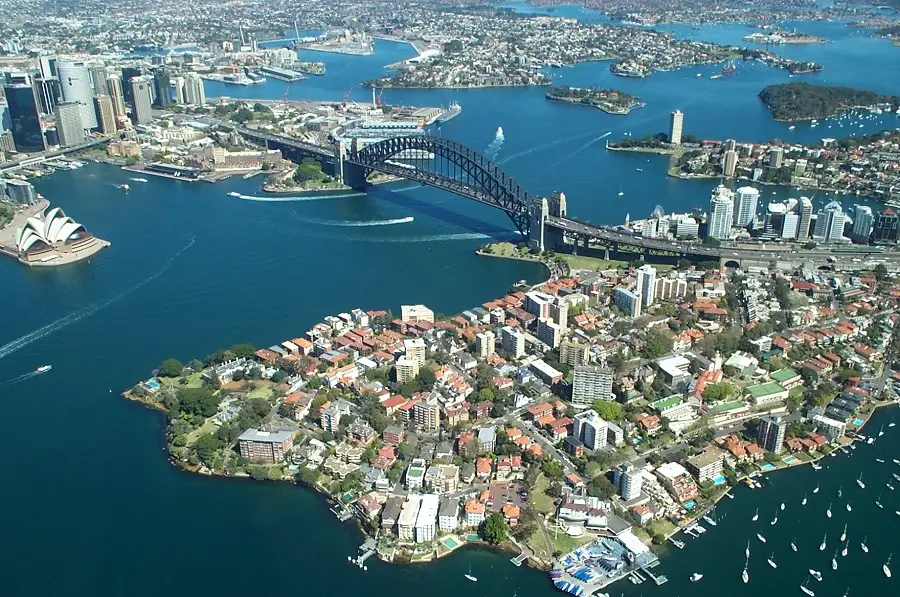Judge Robertson Wright ordered an investigation into the 1981 verdicts of Maksimilijan Bebić, Mile Nekić, Vjekoslav Brajković, Anton Zvirotić, Ilija Kokotović, and Josip Kokotović, who were sentenced to a maximum of 15 years in prison, Australia’s Sydney Morning Herald reported on Tuesday, stating that this was a “historic decision.”
“The NSW Supreme Court has ordered a judicial inquiry into the 1981 convictions of the so-called ‘Croatian Six’ over an alleged conspiracy to bomb four businesses in Sydney and cut the city’s water supply, amid grave concerns the men were framed by a Yugoslav spy,” the Sydney Morning Herald reported.
The “Croatian six” were accused in 1979 of planning to plant bombs in two Yugoslav agencies in Sydney, a Serbian home, a theatre in Newtown, and the city’s water supply.
The verdict was based on the testimony of Vice Virkez (real name Vitomir Misimović), who, as an alleged member of the group, denounced his colleagues to the Australian police in February 1979.
Virkez was sentenced to only two years in prison and after serving he returned to Yugoslavia.
The Australian Croat community warned that Virkez (Misimović), was a Serb from Bosnia and Herzegovina and that he was an UDBA agent who joined a Croatian emigrant group fighting for Croatia’s independence and the overthrow of Yugoslavia.
Judge Wright said on Tuesday he was “comfortably satisfied … there are a number of doubts or questions as to parts of the evidence in the case and the guilt of the Croatian Six”, and that a key witness for the Crown, a suspected Yugoslav spy, may have given evidence that was “deliberately false”.
Judge Wright was quoted by the newspaper as saying that there was a “real possibility that the Yugoslav Intelligence Service used Mr. Virkez as an agent provocateur or informer, to cause false information to be given to the NSW Police, and possibly ASIO, as to the existence of a bombing conspiracy involving the Croatian Six, in order to discredit Croatians in Australia”.
Wright said, “a significant amount of … material in the declassified ASIO documents forcefully suggests that, at least, Mr. Virkez was an informer to the Yugoslav Consulate-General for a number of months prior to the arrest of the Croatian Six in February 1979, if not a Yugoslav agent or agent provocateur.”
Although the requests for review were submitted on behalf of Bebić, Nekić, and Brajković, the court will investigate the verdicts of all those convicted.
Higher courts rejected previous requests to review the verdict.
The Court of Criminal Appeal dismissed the men’s appeals in October 1982, and in 1986 the High Court refused special leave to appeal against the convictions.
All six men denied they had made confessions NSW Police sought to attribute to them, Wright said, and four of the six alleged they had been severely beaten by police.
The doctors confirmed that the day after the interrogation, Brajković had an injury on his neck resembling strangulation, bruises around his eyes and on his face, and a possible hearing loss in one ear, which could be caused by a blow to the jaw, ABC wrote earlier.
Did Australian authorities know that Virkez was a secret agent?
Australian investigative journalist Hamish McDonald, who published the book Anatomy of Injustice – Australian Croatian Six Case Up For Judicial Inquiry 40 Years On – in 2019, reviewed declassified Australian Secret Service (ASIO) documents on Virkez in 2018.
Those documents, according to the Sydney Morning Herald, were key in the request for judicial review.
Other Australian media outlets also wrote about the suspicion that the verdict against the Australian six was the result of an operation by the Yugoslav secret service.
In February 2021, ABC published a story about the case, stating that the bombs were found only in Virkez’s house, car, and a nearby bush.
Australia’s largest daily newspaper, The Australian, recently announced that documents marked “top secret” show that the Australian Federal Police warned then-Prime Minister Malcolm Fraser that they believed Virkez was acting “as an agent of the Yugoslav government.”
“For tactical reasons, the New South Wales authorities want Virkez to be convicted on the indictment so that his evidence against the accomplices is not tainted by the accusation that the agent is a provocateur,” reads the notice received by Prime Minister Fraser, reports The Australian.
As early as March 1979, a year before the start of the trial, ASIO informed the New South Wales police that Virkez was a spy.
The six Croatians were released from prison in 1991 before they served their sentences, allegedly for good behaviour, but their sentences were not overturned.










